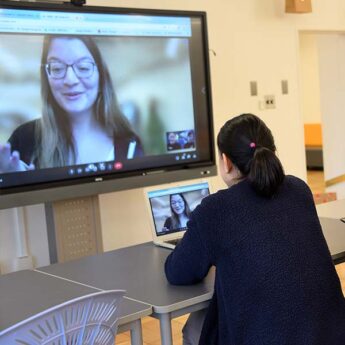Interview with Yuji Shinohara
Daijob Global Recruiting Co., Ltd. provides a recruitment website—www.daijob.com—that has been helping foreign-affiliated firms operating in Japan to fulfil their hiring requirements since 1998. It allows firms to approach jobseekers directly in English.
In 16 years of operation, the firm has focused its efforts on uncovering bilingual and global talent, resulting in over 430,000 site registrations.
Its main service comes as a package that includes posting jobs on the website—with an interface available in English, Japanese and Chinese—viewing resumes through search criteria, and sending scout mail to suitable candidates.
Other popular services include a career fair for bilinguals, and a traditional recruitment agency specialising in placing bilingual, global professionals.
How can global professionals become more marketable to prospective employers?
A global professional isn’t just someone who can speak more than one language.
Such a person can be more clearly defined as someone who has a specific set of skills that he/she is able to use in a global environment. The ability to communicate effectively in English and Japanese is but one of these skills.
The expansion of many Japanese firms into the West and other parts of Asia, together with the impact of Japan’s decreasing birth rate and ageing population, has led to a rising need for such professionals who can work on the global stage.
Prioritising language ability is not the best way to hire a global professional; instead, firms should focus on the overall skill set of an applicant. Regardless of nationality, firms should look for people who have acquired a core set of skills, and are motivated to continue improving the value of those skills over time.
An ideal candidate would be able to express their skill set clearly in terms of how they can help their new employer fulfil its objectives.
What kind of demand is there for Japan-related jobs overseas?
There has been a recent trend among Japanese firms of hiring low-cost non-Japanese staff for foreign branches, as opposed to hiring Japanese people and sending them to the location.
Whether the reason for expansion abroad is to reduce costs by shifting operations overseas or to increase market share in another country, talented professionals are necessary regardless of nationality.
This is particularly true of Asia, where labour costs are increasing and the demand for skilled Japanese workers is rising. As a concrete example, there is a high requirement for skilled salespeople and IT specialists within Japanese firms operating in China. In many cases the salary offered exceeds that of the same position in Japan.
Why are Daijob’s users a good fit for foreign-affiliated firms?
Foreign-affiliated firms conducting business in Japan tend to require professionals with a strong knowledge of the Japanese market and culture, and the ability to communicate effectively with Japanese people.
This means that bilingual Japanese people tend to be in very high demand.
Of Daijob’s registered users, 97% speak at least two languages. The most common registered user is Japanese, and progressing steadily in their career.
Non-Japanese users tend to be business professionals with experience studying in Japan. This usually means they have a good knowledge of Japanese culture and business methods, in addition to those of their home country.
What lies ahead for Daijob.com?
Our mission is to accelerate the globalisation of Japan by increasing the number of people who can work on a global level.
Therefore, it is necessary to improve the status of bilingual, global professionals, regardless of academic record or nationality. We believe that we can do this by providing better jobs for those people.
We also want to attract the attention of talented professionals, and convince them to work more globally.
This summer Daijob launched www.workingabroad.daijob.com, a website offering job openings overseas for people with experience working in Japan. We will also launch a website that supports exchange students studying at Japanese universities to find graduate positions in Japan.
Our eventual goal is to achieve a completely borderless job market.





